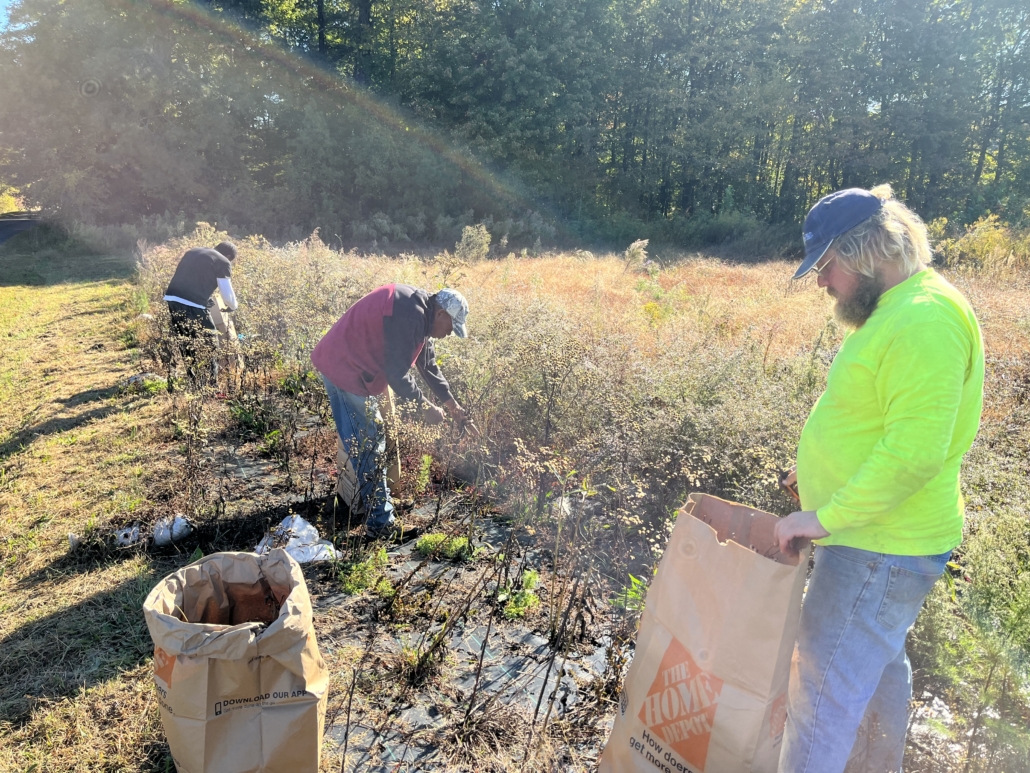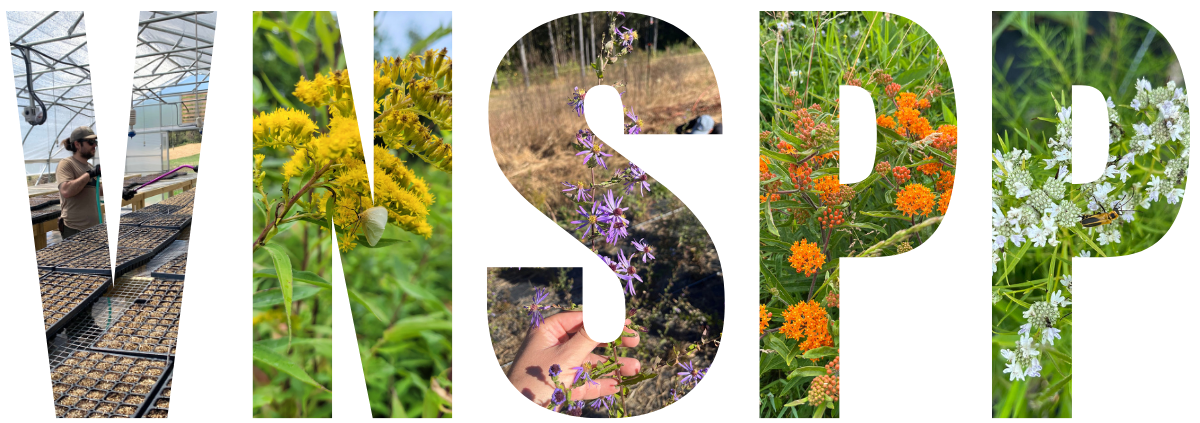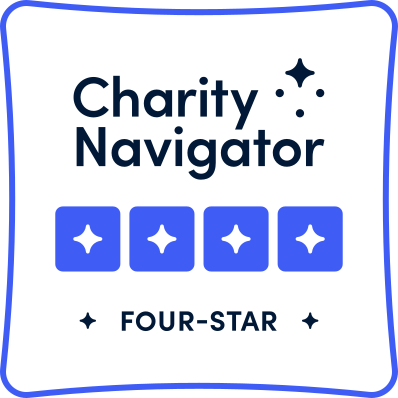Community Is At The Center of Virginia Native Seed Pilot Project
We weren’t sure what to expect as we headed into our second year of seed collection for the Virginia Native Seed Pilot Project. Finding suitable wild populations for each ecotype we produce (coastal, mountain, piedmont) is difficult to begin with, and we wanted to give last year’s collection sites a break this year to make sure there are no negative impacts on the wild populations. This was the last full year to collect the material needed for the current scope of this project, so it was imperative that we used every resource possible to collect all 18 of our target species. Luckily, some key collaborations helped save the season.
A huge part of this year’s success was due to the Virginia Master Naturalists, who established a statewide project to help us with seed collection. VMN volunteers collected more than a third of our entire final seed supply. We also had assistance from several public schools and other independent volunteers who made time to collect seeds for the project!
Additionally, the Department of Wildlife Resources gave us permission to collect seeds at over a dozen different wildlife management areas. With the dedication of our many volunteers, help from VMN, and the partnership with DWR, we were able to collect all 18 target species and we expanded our reach into mountain and coastal areas.

As we wait for spring and the next growing season, we are working on securing additional funding to extend the project another three years. This is the critical next step to see more Virginia ecotype seed hit the market because it will help us get our harvesting operations to the commercial scale.
We’re planning to expand the project by recruiting more farmers in the western portion of Virginia, responding to interest from several public schools regarding implementing programs for native plant propagation, and collaborating with the Rappahannock Tribe to establish a seed harvesting operation. All of this interest helps reaffirm what we know about this project–it has a broad range of applications and there are countless ways that it can benefit everyone from the farmers who grow the seeds, the consumers who plant them, and of course, the wildlife that depend on native plants.

Thank you to our partners and collaborators thus far:
The Nature Conservancy
Ernst Conservation Seeds
Capital Region Land Conservancy
Department of Conservation Recreation
Virginia State University
Department of Wildlife Resources
Center for Urban Habitats
Virginia Master Naturalists
Friends of Dragon Run
Chancellor’s Rock Farm
Slade Farms
Pat Acres Farm
Morning Glory Farm
Rev. Dr. Johnny & Fonda Hicks
Marky Dewhirst & Scott Barboza




